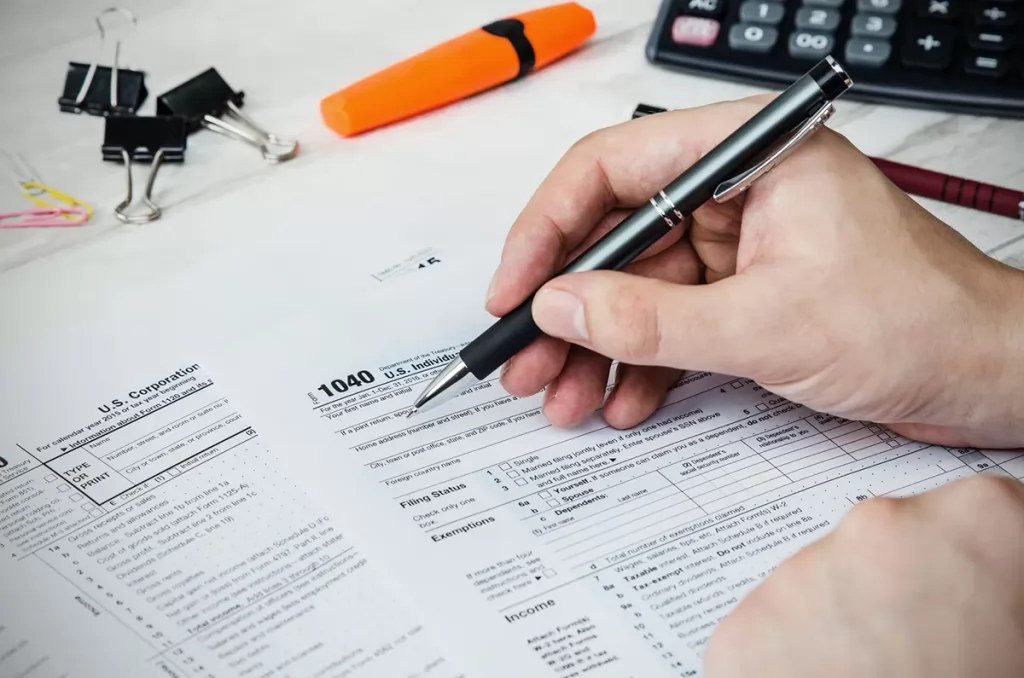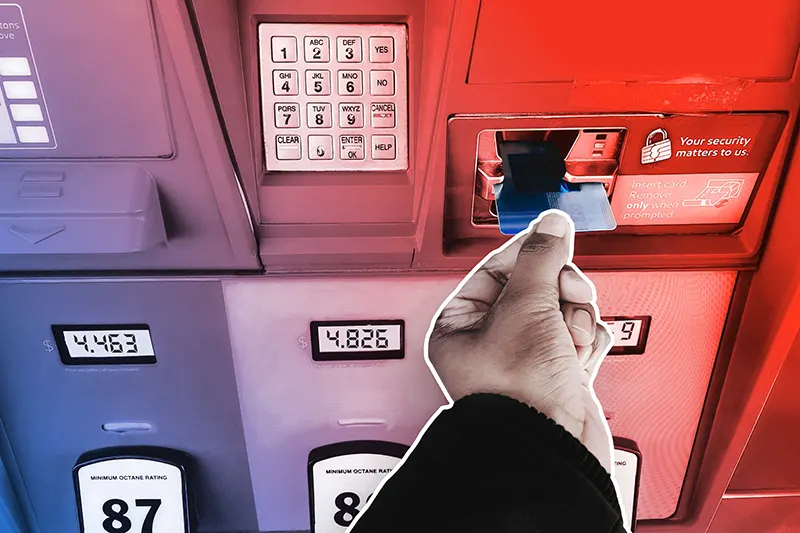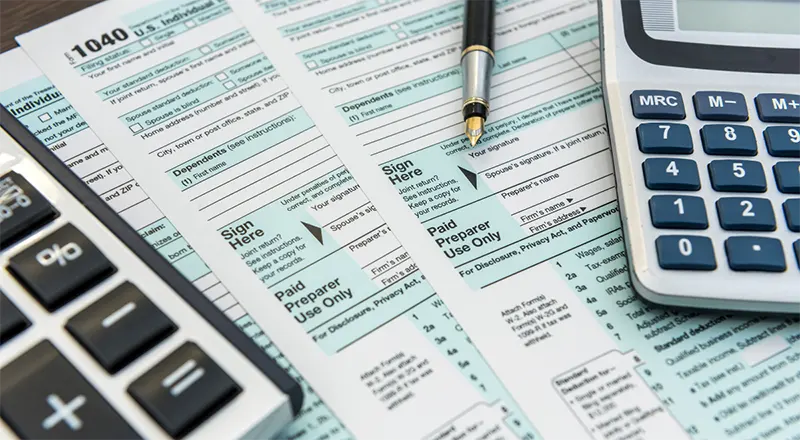
Many non-Amish people often wonder if the Amish pay taxes. For most, this question is a bit fair considering the Amish families’ simplicity and lifestyle. These people reject various conveniences brought by technological advances and even government-funded projects.
Law-abiding, Amish people pay taxes like income, sales, and real property taxes. They respect the government even though they choose not to receive any subsidy from some government projects.
To know more about Amish and how they fulfill their tax obligations, read on.
[table id=5 responsive=”collapse” /]
What Taxes Do the Amish Pay?
Many outsiders think that the Amish’s isolation from the public also means that they’re ignoring the government and the laws.
In reality, however, these people are known to be law-abiding citizens; even though some rules may seem unfair to them, they still adhere to everything the government and their church tell them.
The common myth that the Amish don’t pay taxes is quite offensive to many Amish people. They actually pay taxes because they understand that it’s mandatory. Like Non-Amish people, they deliver what the government dictates, especially regarding tax laws.
Income Tax
The Amish pay state income taxes. Most men belonging to their community are business owners and self-employed. They are incredibly successful and pay vast amounts of income taxes. Some of types of business range from farming, livestock, wood milling, to building and selling Amish furniture.
Fortunately, they are also eligible to claim Child Tax Credits whenever applicable. The majority of income taxes goes to several government programs like Social Security, health programs, defense, and interest on the national debt.
Social Security and Health Programs
Since the Amish culture entails taking care of one another, especially the old and the sick, they don’t receive the benefits of Social Security. They usually consider such programs as insurance programs that wildly contradict Amish beliefs in joining commercial insurance.
The Amish people may cite 1 Timothy 5:8, “But if someone does not provide for his own, especially his own family, he has denied the faith and is worse than an unbeliever.”
National Debt
Since Amish people pay income taxes despite their refusal to receive the government benefits of such taxes, they play a more prominent role in contributing to the interest in the national debt.
Sales Tax

The Amish pay sales taxes every time they make taxable purchases. These sales taxes are placed on the sale or lease of goods and services in the United States, which fund local services like roads, schools (depending on the state), and emergency services.
Roads
They may not have cars, but Amish people still use the roads with their buggies or horses. These can still cause damage that may necessitate tax-funded repairs.
In some states like Ohio, the Amish should register their buggies. Part of these registration fees goes to the roads’ maintenance costs. However, this does not apply to all fifty states or everywhere.
Schools
The Amish children are taught in parochial schools provided by many Amish communities through the eighth grade. They are exempted from state-compulsory attendance beyond the eighth grade based on religious beliefs.
Amish children from an Amish community without a parochial school are sent to public schools, which presents a challenge due to the language barrier.
However, this option is rare since most Amish families care deeply about their children’s education and prefer being taught under Amish principles.
Emergency Services
Despite their self-sufficiency or heavy reliance on Amish neighbors, they still call the police when a worse crime occurs in their area.
They are used to taking matters into their neighbors’ and church’s hands, especially those due to minor issues. However, with law enforcement involved or without, they still abide by their church rules regarding pressing charges.
Property Taxes

Property taxes, commonly called “Land Taxes,” vary from one state to another. In Pennsylvania, where there are more Amish occupants, land prices and property taxes are incredibly high.
These property taxes fund elementary and secondary schools, libraries, and other community services.
Most Amish families own lots of lands. Most of them also have large homes due to their large families. Therefore, the Amish pay property tax with huge amounts of money yearly.
Schools, Libraries, and Other Community Services
Even though the Amish have their schools, libraries, and other services within their communities, they still pay property tax to fund public elementary and secondary schools, libraries, parks, and other services in the country.
The Amish stay most of the time within their communities, so they don’t benefit from these.
Most of the time, school taxes are part of the property taxes. If not, all Amish people are required to pay school taxes separately.
The Amish people pay property taxes or public school taxes to provide children with public schools and pay extra to send their own to Amish private schools.
What Taxes Do Amish People Not Pay?
Due to the Amish people’s lifestyle and religious beliefs, the general Amish population doesn’t have to pay social security, gas, and sin taxes.
Social Security Taxes
Social Security is a government benefit that starts paying American taxpayers when they reach the age of 67 years old.
While this is mandatory for all Americans, religious sectors such as the Amish may choose not to pay for this, provided they must take the necessary steps legally.
How to Opt Out Of Social Security if You’re Amish
Being born from an Amish family doesn’t automatically exempt anyone from social security tax.
Youths from Amish communities who are not yet baptized are required to pay these taxes. In many Amish churches, the age requirement for baptism is between sixteen and twenty-five.
An Amish person who is not working for a Non-Amish employer, a businessman hiring non-Amish employees, and is already baptized in an Amish church can opt out of social security tax.
To opt out, fill out the Application for Exemption From Social Security and Medicare Taxes and Waiver of Benefits, commonly known as Form 4029.
By filling this out, the signee must acknowledge that he’s waiving all his rights to any social security benefits, no matter how eligible the signee is based on the previous payments.
For Non-Amish people or non-members of specific religious sectors, opting out of Social Security is not easy.
As of today, the law only allows members of the clergy and members of recognized religious sects such as the Amish and the Mennonite to opt out. Economic reasons are not accepted.
Even though Social Security may be one of the best benefits anyone can get, for the Amish, receiving hand-outs or any financial help from the government is never right.
They seriously stand up for their belief that every Amish man should care for his family.
Gas Taxes

To pay directly for the gas tax, one must purchase gasoline. The Amish People use horses or buggies that don’t require gasoline. Therefore, they don’t directly pay gas taxes to fund repairs for the roads they use daily.
For this reason, many outsiders think the Amish are pretty selfish since their buggies and horses cause more damage to the roads than cars.
However, if one looks at the sales tax a regular Amish person pays, it is worth noting that somehow the Amish help fund road repairs in the country. Aside from schools and other emergency services, sales tax funds repairs and maintenance of roads.
In addition, a few Amish business owners use fuel-powered generators to run their businesses. This small number purchases gasoline or diesel to power their generators.
Sin Taxes
Sin taxes are specific taxes added to products that many people consider sinful. These products include alcoholic beverages, tobacco, and gambling items.
Since leaders of Old Order Amish churches prohibit the use of tobacco, consumption of alcohol, and taking part in any gambling activities, the Amish people automatically don’t pay sin taxes.
However, this doesn’t mean that all Amish people don’t smoke. Some Amish men grow tobacco at home and smoke it using their pipes.
Conclusion
Despite what many Non-Amish people believe, the Amish pay taxes and even give more than their fair share.
They may not always benefit from the money they spend with these taxes due to their religious beliefs, but what’s more important to them is that they can fulfill their responsibilities to the government.

